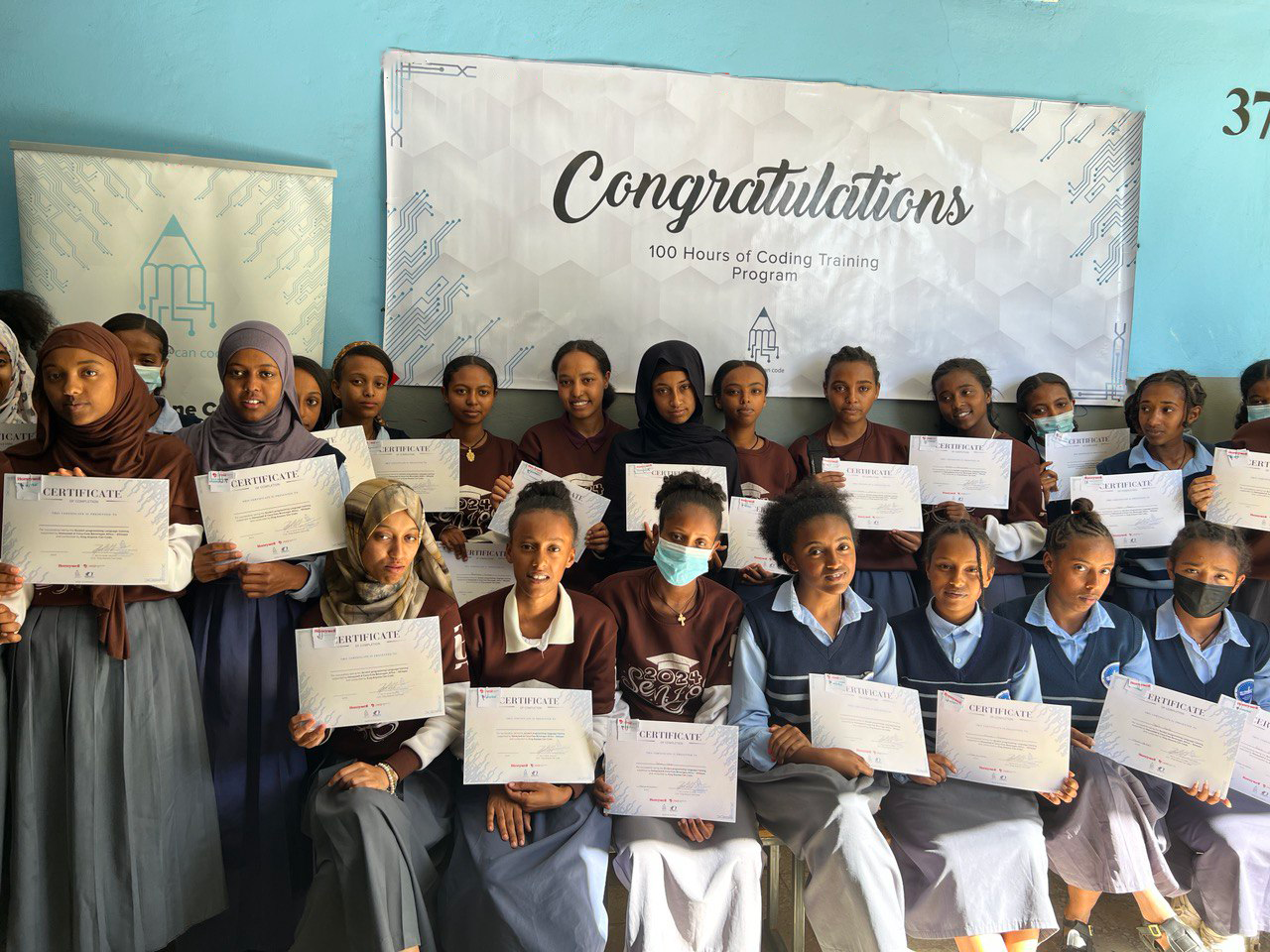From Girls to Trailblazers: for(her)'s Story of Empowering Ethiopia's Future

The Ethiopian Education system seeks to create competent and self-reliant citizens to contribute to the economic and social development of the country, thus improving the livelihoods of all Ethiopians. The government has been improving tech education by increasing access to training programs, improving the quality of education and training, and strengthening partnerships between TVET institutions and industry. iCog Anyone Can Code (iCog-ACC) considers itself a beneficial contributor to tech education in Ethiopia and implements its projects by collaborating with different stakeholders within the tech ecosystem.
iCog Anyone Can Code (iCog-ACC) embarked on a mission to equip young minds with the digital tools of tomorrow. The journey, spanning almost 8 years, has impacted both directly and indirectly over 30,000 young people, a testament to the team’s dedication to bridging the digital divide. iCog-ACC's vision is bold: to equip students with not just technical coding skills, but also the soft skills and critical thinking necessary to thrive in a rapidly digitizing world.
for(her) is a flagship coding training program for public high school girls under iCog-ACC aiming to solve a phenomenon known as the ‘leaky pipeline’ - when the number of girls joining the primary school is nearly proportional to their counterparts but tends to dramatically decrease as they progress higher in education, profession, and adulthood.
But for(her) isn’t the first program under iCog-ACC with this aim, in collaboration we implemented the U.S. Embassy’s Girls Can Code in 2017. Girls Can Code - Next Generation was able to reach more than 200 girls in public schools in nine cities. Since then as an extension of the program the for(her) project has grown to reach thousands.
Imagine the scene: Bishoftu, Assosa, Jimma, Wolayta, Dessie, Addis Ababa, Sebeta, Dire Dawa, Hawassa, Gondar, and Semera – bustling Ethiopian cities, each with a unique story to tell. In the past 3 years, these cities witnessed a unique journey as students embarked on a 5-week coding adventure. Over these years and implementation with numerous partners, we were able to directly reach students in more than 10 cities. The language of their exploration? Scratch, a powerful tool designed to ignite creativity and problem-solving skills, and the cherry on top? All done in their local languages and contexts they are familiar with.
The journey wasn't without its hurdles. High schools, though mandated to have computer labs, often needed more resources or trained personnel to utilize them effectively. The iCog-ACC team persevered, collaborating with universities in these cities to leverage their facilities and also maintaining the existing computer labs in the schools so that the girls could practice what they have learned.
Our "Training of Trainers" program served as a cornerstone of their strategy. We identified and trained 2 ICT teachers from each participating school, along with 2 female university staff members, empowering them to become future guides and role models for these young girls as representation in the STEM field for women, especially in regional cities, where it is very rare. These local mentors, familiar with the girls' backgrounds, provide ongoing support and guidance, nurturing a sense of belonging and possibility.
With the training complete, we didn't stop there. Coding clubs were established, providing students with the space and resources to hone their newfound skills and continue their digital journeys. The ultimate goal? To equip them for potential careers in STEM and to nurture critical thinkers, problem solvers, and future trailblazers who can inspire future generations.
for(her) program story is a powerful testament to the transformative power of education. It's a story of girls empowered, in our social impact projects with the tools of the future, and countless individuals empowered to shape their own destinies and contribute to the development of their nation. It's a story that echoes with the potential of a brighter future, line by line of code.
Written by: Rebecca Surafel and Lydia Yoseph.
